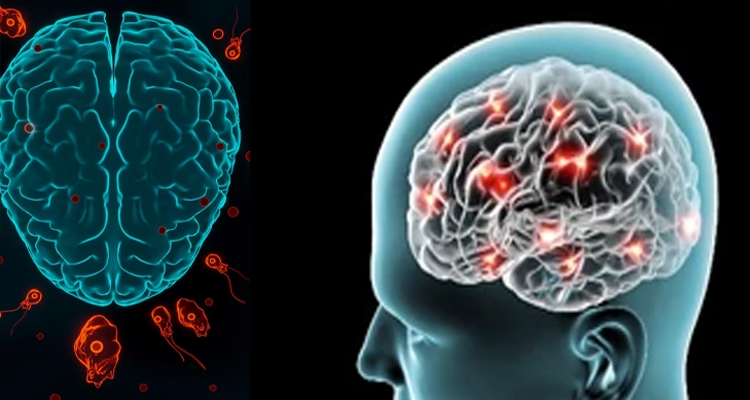
Kerala on Alert, Health Minister Calls It a “Public Health Challenge”
Thiruvananthapuram: Kerala’s health machinery is on red alert after a sudden spike in cases of Primary Amoebic Meningoencephalitis (PAM), a rare but almost always fatal brain infection caused by the so-called “brain-eating amoeba” Naegleria fowleri, which has already killed 19 people this year.
According to state health officials, 69 cases have been reported so far in 2025, with infections emerging not only in earlier hotspots such as Kozhikode and Malappuram but also sporadically across different districts. Victims range from a three-month-old infant to a 91-year-old.
Health Minister Veena George described the situation as a “serious public health challenge,” noting that the infections are no longer confined to clusters linked to a single water source. “This year, we are seeing isolated cases spread across the state, which has made epidemiological investigations more complex,” she said.
What is the ‘Brain-Eating Amoeba’?
Naegleria fowleri thrives in warm, stagnant freshwater. The amoeba enters the body through the nose — usually while swimming, diving, or bathing — and travels via the olfactory nerves to the brain, where it destroys brain tissue.
-
Drinking contaminated water does not spread the disease.
-
It is not transmissible from person to person.
The infection progresses with alarming speed. Initial symptoms resemble bacterial meningitis — headache, fever, nausea, and vomiting — often delaying diagnosis. The Kerala advisory warns that once the amoeba reaches the brain, it causes swelling, impaired immune response, and almost always leads to death within days.
Rising Risk with Climate Change
Experts warn that climate change is intensifying the threat, as warmer waters and greater recreational use of ponds and lakes increase human exposure.
Kerala reported its first PAM case in 2016 and saw just eight cases until 2023. But numbers shot up last year with 36 cases and nine deaths. In 2025, the toll has nearly doubled, alarming both health officials and the public.
‘Brain-Eating Amoeba’ – Treatment and Prevention
Survival rates remain extremely low. Almost all known survivors worldwide were diagnosed early and treated aggressively before the infection spread.
Authorities in Kerala have issued a safety advisory urging people to:
-
Avoid swimming or bathing in untreated or stagnant freshwater ponds and lakes.
-
Use nose clips while swimming in natural water bodies.
-
Ensure regular cleaning and chlorination of wells and water tanks.
The Health Department is ramping up awareness drives, hospital coordination, and surveillance to ensure faster detection and response.




